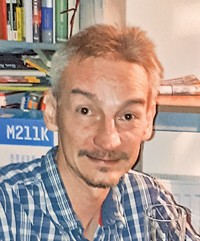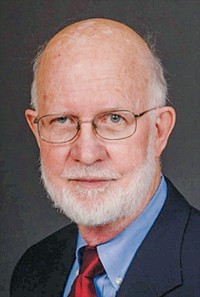Advertisement
Grab your lab coat. Let's get started
Welcome!
Welcome!
Create an account below to get 6 C&EN articles per month, receive newsletters and more - all free.
It seems this is your first time logging in online. Please enter the following information to continue.
As an ACS member you automatically get access to this site. All we need is few more details to create your reading experience.
Not you? Sign in with a different account.
Not you? Sign in with a different account.
ERROR 1
ERROR 1
ERROR 2
ERROR 2
ERROR 2
ERROR 2
ERROR 2
Password and Confirm password must match.
If you have an ACS member number, please enter it here so we can link this account to your membership. (optional)
ERROR 2
ACS values your privacy. By submitting your information, you are gaining access to C&EN and subscribing to our weekly newsletter. We use the information you provide to make your reading experience better, and we will never sell your data to third party members.
Environment
Physics Giant Hans Bethe Dies
by LINDA RABER
March 14, 2005
| A version of this story appeared in
Volume 83, Issue 11
OBITUARY
Hans A. Bethe, a pioneer of 20th-century physics, died on March 6 at his home in Ithaca, N.Y. He was 98.
Bethe, who won the Nobel Prize in Physics in 1967, was an emeritus professor of physics at Cornell University.
During World War II, Bethe was a key figure in the building of the first atomic bomb as head of the Theoretical Physics Division at Los Alamos National Laboratory.
In the 20 years following the war, Bethe became more involved in what he called "political physics," an attempt to educate the public and politicians about the consequences of the existence of nuclear weapons. He was a champion of arms control, helping to persuade the White House to ban atmospheric nuclear tests in 1963 and antiballistic missile systems in 1972.
Born in Germany, Bethe studied physics at the University of Frankfurt and did research in theoretical physics at the University of Munich, where he received his doctorate in 1928. He was forced to flee Nazi Germany because his mother was Jewish.
He immigrated to the U.S., accepting a position at Cornell in 1935. In 1938, he published his influential paper on the theory of energy production in stars that explained how the sun shines. The work won him the Nobel Prize.
Bethe is survived by his wife, Rose, and two children, Henry and Monica.





Join the conversation
Contact the reporter
Submit a Letter to the Editor for publication
Engage with us on Twitter